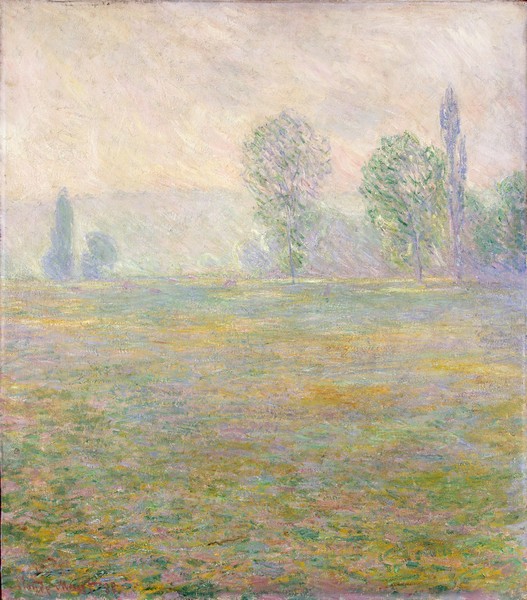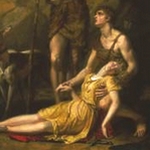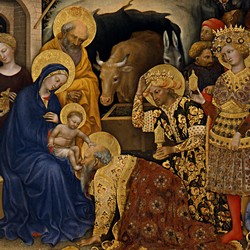
"Evenings on the Roof" was a chamber music series launched in Los Angeles in 1939. The venue was Peter Yates and Frances Mullen’ home, music critic and pianist (among other things) respectively. At that time, it wasn't easy to listen to contemporary music in the usual circuits, and many people missed it in that city, especially the exiled German musicians who gathered there. Weekly, Yates and Mullen used to offer new music for a small audience; the first concert was dedicated to Bartók and the series included premieres from Schoenberg and Stravinsky, for example. Eventually, "Evenings on the Roof" changed, but still can be found under another name, "Monday Evening Concerts".
One of the works premiered in "Evenings on the Roof" is Three Songs from Shakespeare, virtually the first songs written by Igor Stravinsky in more than thirty years. His last cycle had been Four Russian songs, in 1919, based on traditional songs; It was composed during the "Russian period", whose most important works were the ballets The Firebird, Petrushka and The Rite of Spring. Now, in 1953, the composer had ended his Neoclassical period with the opera The Rake's Progress and started the serialist period.
W. H. Auden, co-librettist of The Rake's Progress, had edited the five-volume Poets of the English Language anthology and gave it to Stravinsky, who was keen on literature. The composer chose and musicalized three poems by Shakespeare from the second volume: the Sonnet no. 8, Music to hear; Full fathom five, from The Tempest, and When daisies pied, from Love's Labour's Lost. Setting a sonnet to music was an unusual option; with the other two songs, Stravinsky did as other 20th century composers; after having dedicated the 19th century to Ophelia, they set to music mostly, comedies by Shakespeare.
Love's Labor's Lost is an early comedy by Shakespeare. Everything begins when the king of Navarre and two knights decide to devote themselves to three years of studying, giving up any activity that could distract them from books; Among those distractions, they commit to avoid women and, to prevent temptations, no woman can approach within a mile of the court. But the princess of France and two ladies-in-waiting arrive in a diplomatic mission and the gentlemen are compelled to receive them. In spite of their good intentions, the three men fall in love and break their promise without each other's knowledge. On the other hand, women are sceptical about those men's intentions. Shakespeare's usual intrigues end up when bad news arrive from France: the King is dead. The princess decides to go back home, after imposing the King of Navarre a year of reflection before deciding whether to marry him or not.
A planned theatre play in honour of the ladies is cancelled because of the bad news; Finally, to say farewell to them, two songs are performed, the only sung in this comedy: one dedicated to spring and the other to winter. And that's how Love's Labor's Lost ends. In his cycle, Stravinsky musicalizes the song of spring, When daisies pied, also known as the Song of the cuckoo (while the winter song is the Song of the owl). By the lyrics and the context, the songs are easily identified with a popular song and so the Stravinsky version shows it. As I said, these songs are transition works from neoclassicism to serialism, serialism that the composer reinterpreted in his own way, without literally following Schoenberg's postulates. When daisies pied is a good example of how he integrates different components in the same piece: although the serialist features are clearly heard, we also unequivocally hear some characteristics from traditional music, something reinforced by the accompaniment that Stravinsky chose for the song cycle: flute, clarinet and viola. Later, he made a version for voice and piano, but he makes his debut on Liederabend with the original version of the song, performed by Magdalena Kožená, Kaspar Zehnder, Andrew Marriner and Yulia Deyneka.
When daisies pied and violets blue
And cuckoo-buds of yellow hue,
And lady-smocks all silver white,
Do paint the meadows with delight,
The cuckoo, then on ev'ry tree
Mocks married men, for thus sings he,
Cuckoo,
Cuckoo, cuckoo: o word of fear,
Unpleasing to a married ear.



 My...
My...












Comments powered by CComment